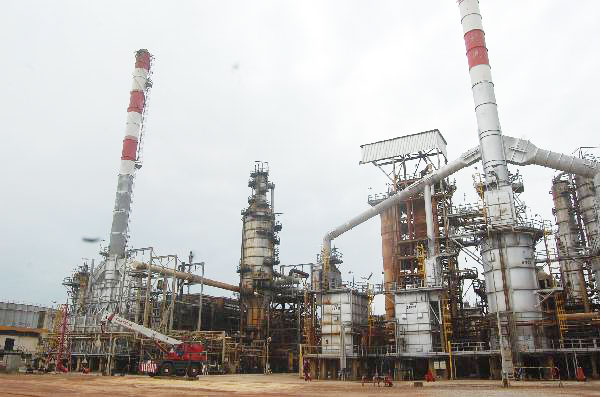
As Ivory coast looks toward 2030, the country is positioning petroleum and hydrocarbon resources at the heart of a renewed strategy for economic growth and diversification.
While cocoa continues to dominate exports—accounting for 30.2% of revenue in 2025—petroleum products have risen to second place with an 18.5% share, followed by gold (11.9%), rubber (11.4%), and cashew nuts (6%).
With a GDP estimated at nearly $80 billion—representing 40% of the West African Economic and Monetary Union’s (WAEMU) total output—Ivory Coast is aiming for a growth rate of 6.5% between 2024 and 2026.
This expansion is fuelled by a clear national vision: leveraging mineral and energy wealth while sustaining agriculture’s vital contribution.
a new dawn for hydrocarbons
The Ivorian sedimentary basin currently holds 50 oil blocks, 28 of which are active and six already producing.
The sector was redefined in 2021 with the landmark discovery of the Baleine field, estimated to contain 2.5 billion barrels of oil and 3.3 trillion cubic feet of gas.
Operational since August 2023, Baleine is expected to deliver for at least 35 years, marking a historic turning point for the nation’s oil industry.
The March 2024 discovery of the Kalao deposit—with over 1.5 billion barrels of reserves—further boosts prospects. Production at Kalao is scheduled to begin in 2030.
Additional fields, including Paon, Eland, Kudu, and Gazelle, are set to enter the pipeline, supported by an uptick in exploration revealing promising new geological structures.
Hydrocarbon output reached 44,139 barrels per day in 2024.
By the end of 2025, production is projected to hit 70,000 barrels daily, along with 320 million cubic feet of gas.
Ivory coast ambitious goal is to triple output to 200,000 barrels per day by 2030—enough to place it among Africa’s top six oil producers.
infrastructure and inclusive growth
To sustain and scale this growth, the Ivorian government has launched a series of infrastructure upgrades.
These include a new natural gas pipeline linking Abidjan to Bouaké, expansion of gas distribution in Yopougon, and the development of a modern logistics base and port infrastructure.
Equally significant is the government’s emphasis on local content.
Measures such as fiscal stability guarantees, investment incentives, and fast-tracked production-sharing agreements aim to attract investment while ensuring that Ivorian businesses and workers benefit directly.
Profit-sharing models are being refined to better support local entrepreneurship and reinforce economic resilience.
As Ivory coast advances toward 2030, petroleum is set to become more than just an export commodity.
It is emerging as a strategic pillar of a forward-looking economy—one where natural resources are transformed into national prosperity, and growth is shared across sectors and communities.



